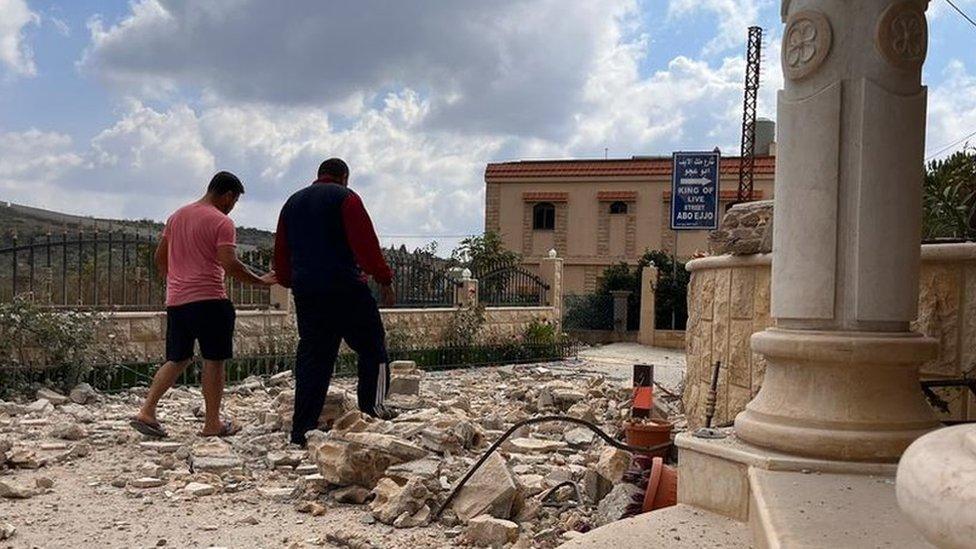The derelict hotel sheltering Lebanese displaced from border
- Published
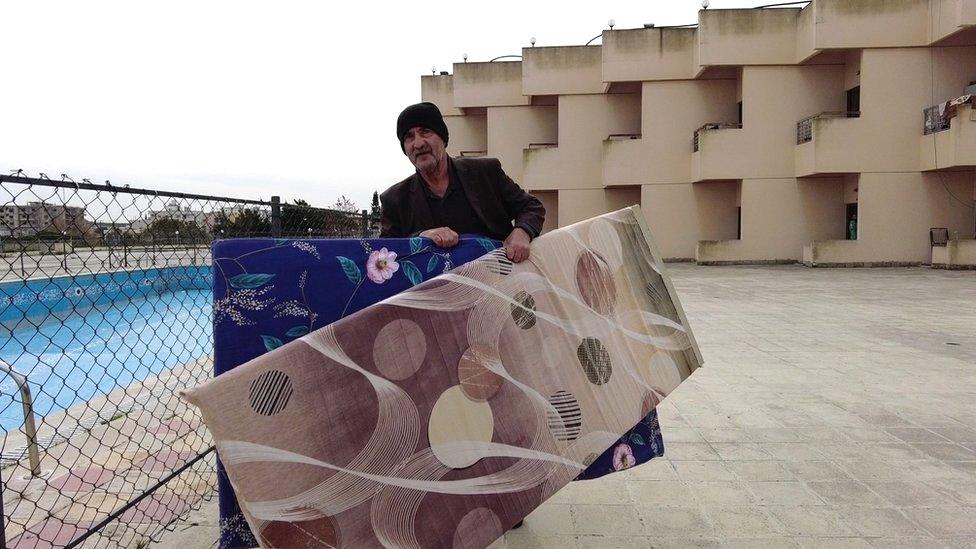
The Hotel Montana in Marwaniyeh has become home to displaced residents of Lebanese border towns
On an elevated position overlooking the town of Marwaniyeh in southern Lebanon, with its pastures and green lands, stands the imposing, three-storey structure of the Hotel Montana.
Despite its derelict state, there are reminders of its better days - a marble-floored reception hall, a large pool and wrought iron railings. After being sold at auction years ago, it was completely abandoned.
Four years ago, authorities agreed with its owner to use it as a quarantine facility during the Covid-19 pandemic.
Today, its owner has once more made it available for use, this time as a displacement centre.
A few months ago, the hotel opened its rooms again to shelter around 50 families from border towns following the start of the ongoing round of hostilities between Hezbollah and Israel on 8 October, the day after Hamas's attacks on southern Israel triggered the war in the Gaza Strip.
Hezbollah - an Iran-backed Shia Islamist group proscribed as a terrorist organisation by the UK, US and others - is the largest military force in Lebanon. It says it is attacking Israel in support of Palestinians in Gaza.
The Israeli military has carried out air and artillery strikes in response, fuelling fears of a major confrontation.
The escalation has prompted tens of thousands of residents from both sides of the border to flee their homes.
In Lebanon, around 90,000 people have been displaced. The overwhelming majority are staying with relatives or in rented houses. The rest are in centres like the Hotel Montana.
As the sun spread its warmth on a cold day, children here gathered to play football, racket games or take a walk.
Many of them are not attending any classes after their schools were shut because of the war. Others have online lessons, but they can only join for a few hours each morning before the generator that provides electricity to the premises is switched off.
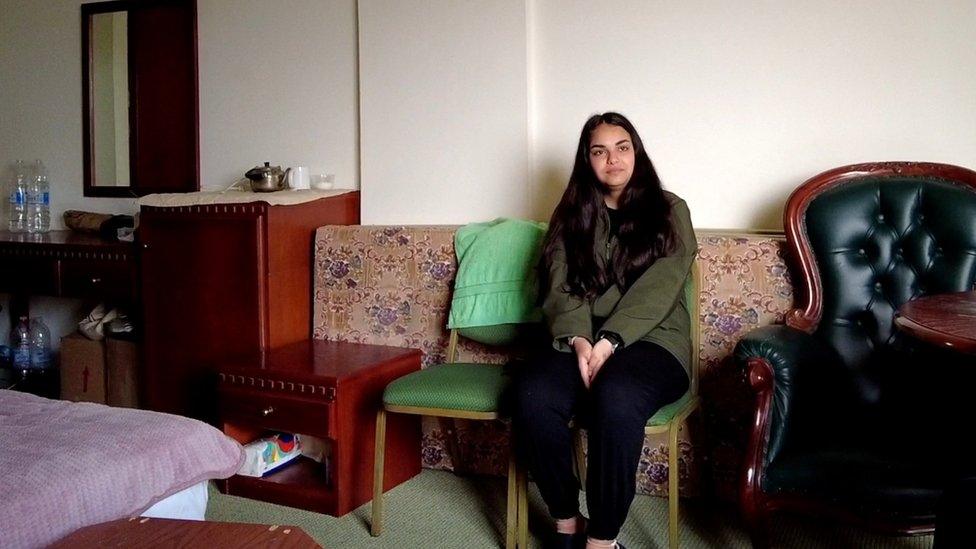
Fatima, from Odaysseh, had to move many times before finding a room at the hotel
Fatima was supposed to be in the 6th Grade. But her school in the border town of Odaysseh had not even started enrolling students for the new year when the fighting started.
"My dad came home one day and told us that we had to leave the house the next morning. We were packing our stuff while crying," Fatima says.
She's now staying with her father, mother and brother in one room. It's spacious, with a queen size bed and an en suite bathroom.
Fatima and her family had to move many times before settling in the hotel.
"We stayed in four or five different places before we got here," her father Abu Ali, who is helping with organisational efforts at the hotel, tells me.
He longs to return to his village where he was born and raised.
"Only God knows when we will back. Unfortunately, there are no signs on the horizon. This has been happening for too long."
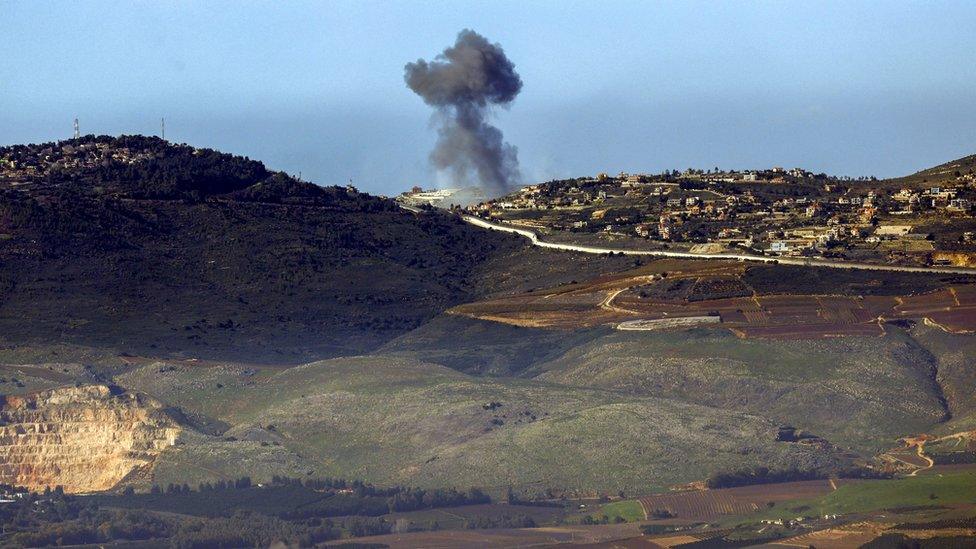
Smoke is seen billowing over the Lebanese town of Odaysseh in this photo taken from northern Israel on 20 January
Manahel, in her late 50s, is also from Odaysseh. She has no idea whether her house is still standing.
"Our village is completely empty. No-one has access to it at the moment."
She fears the worst. "We do not care about the stone, but what matters to us are the memories. It's very painful."
In the corridor, the hotel's "guests" meet and chat. Each one is from a different border town; all united by displacement. Families refer to each other by their room numbers and behind each door is a story of a village.
On top of the displacement, families from southern Lebanon have to deal with uncertainty and constant fear for their safety.
As the conflict continues, it's also getting closer.
On 19 February, an Israeli air strike in Ghaziyeh, a few towns away from Marwaniyeh and around 50km (30 miles) north of the border, caused shock across southern Lebanon and beyond.
As footage of the attack circulated on social media, people feared the war would not remain confined to the border area and its surroundings.
Five days before that, an Israeli air strike had killed seven people from the same family in Nabatiyeh, to the south-east.
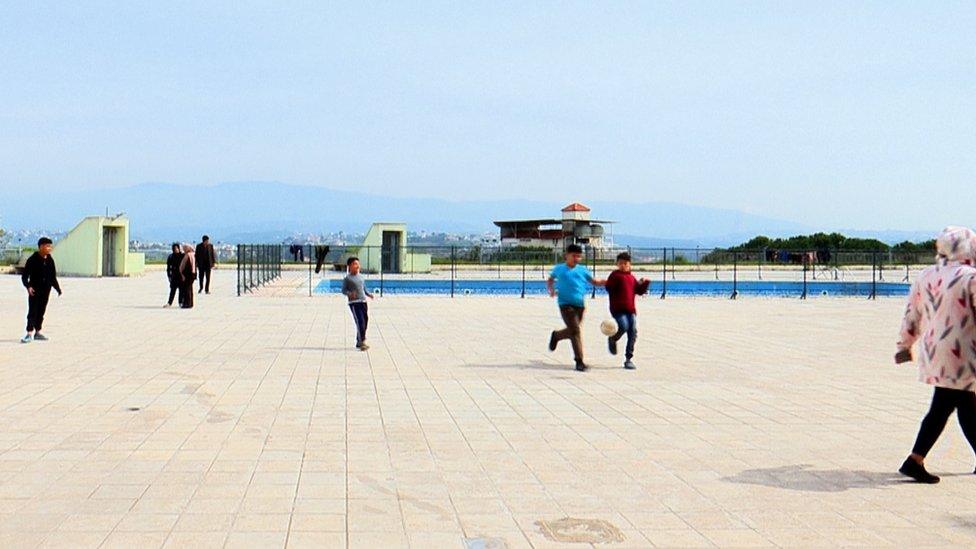
Lebanese authorities say some 90,000 people have been displaced as a result of the cross-border hostilities
On that night, many people from the city sought refuge at the Hotel Montana. They spent their night sleeping on thin mattresses on the floor. Most of them left the next day, but more could be expected at any time.
Salam Badreddine is in charge of the Disaster Management Committee in the al-Zahrani area, which is composed of more than 70 towns.
He tells me that when the hostilities started, no-one expected them to last that long.
"We thought it would be a matter of days or weeks, but the hostilities have expanded greatly. There's no longer one single conflict spot."
He added: "The more the situation escalates, the bigger the number of displaced. Emergency and relief plans are constantly updated which puts a lot of pressure on us. We always have to reassess the situation."
The fighting comes amid an unprecedented economic crisis in Lebanon. A lot of organisations are providing help to the displaced.
As we were visiting the hotel, we met representatives of a non-governmental organisation providing the displaced with hot meals. Another organisation has set up a clinic in the premises. A third is looking after the children's needs.
There were also people from the Red Cross giving awareness sessions on how to deal with disasters and earthquakes. But for the displaced attending, a different kind of danger is already too close to home.
Related topics
- Published19 February 2024
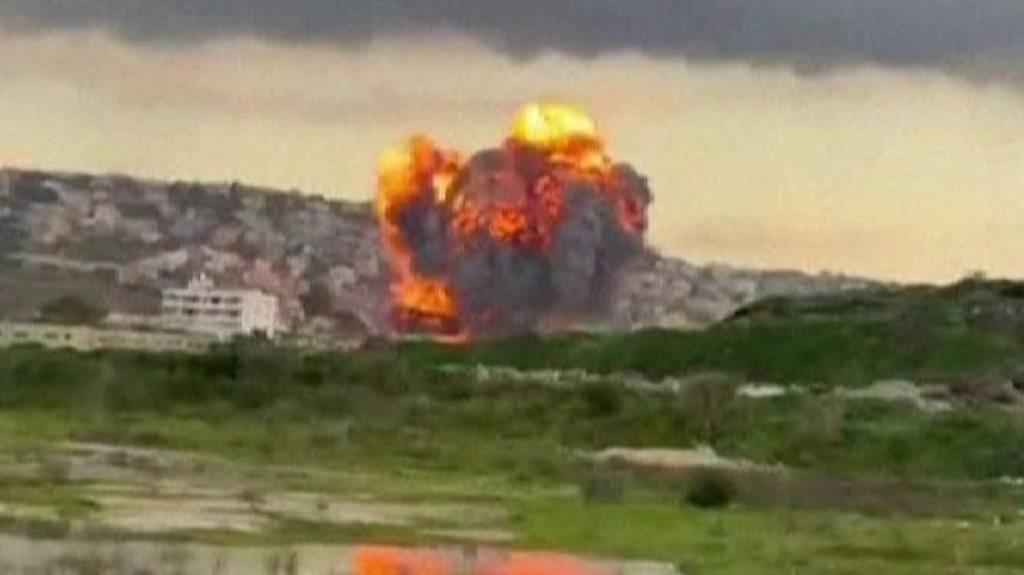
- Published14 February 2024
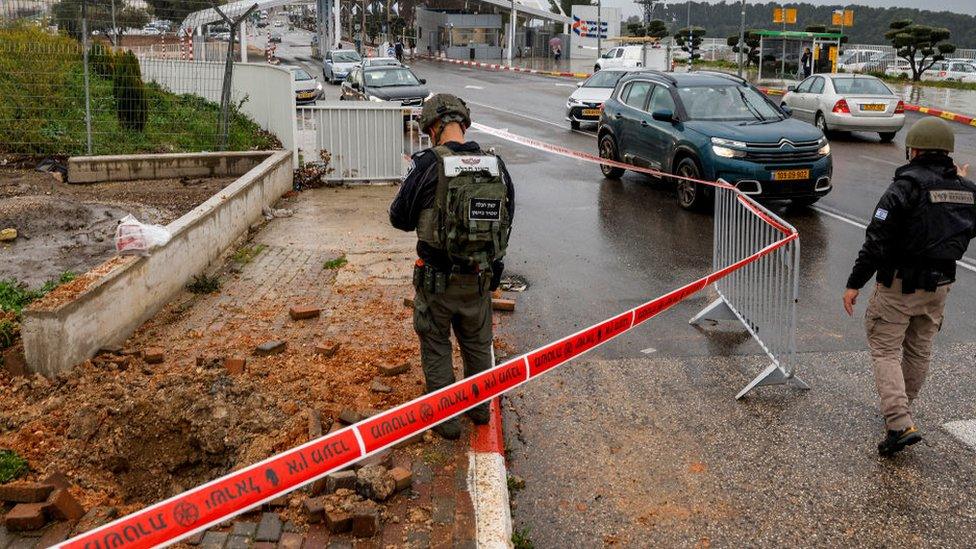
- Published9 January 2024
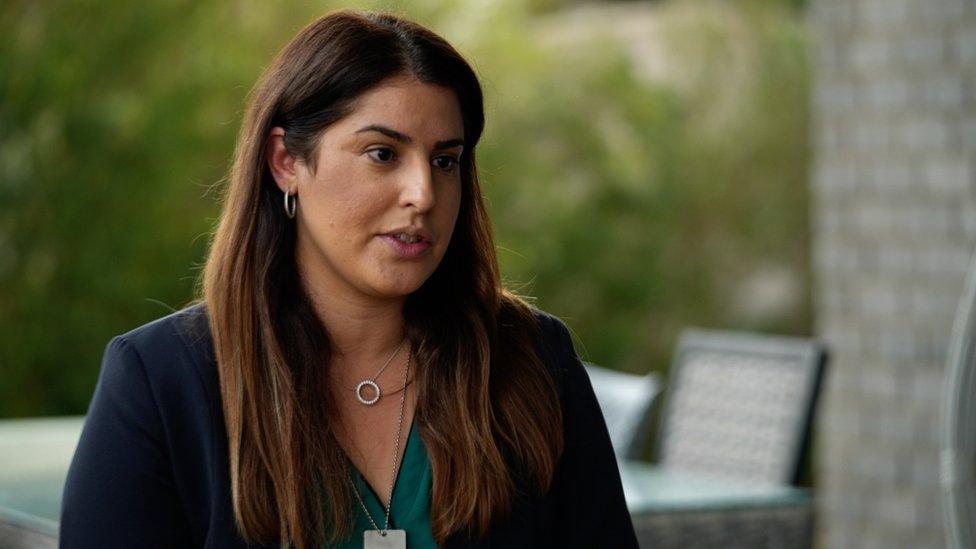
- Published3 January 2024
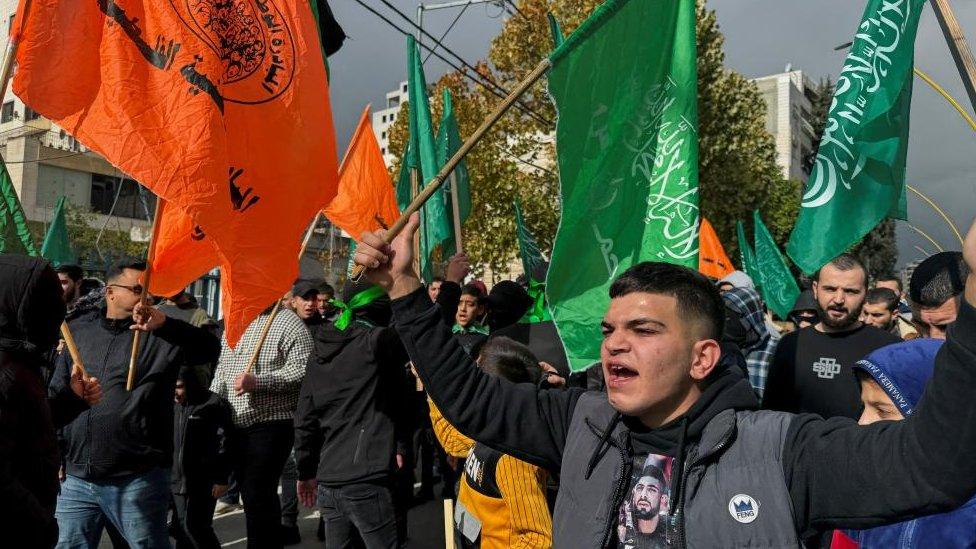
- Published14 February
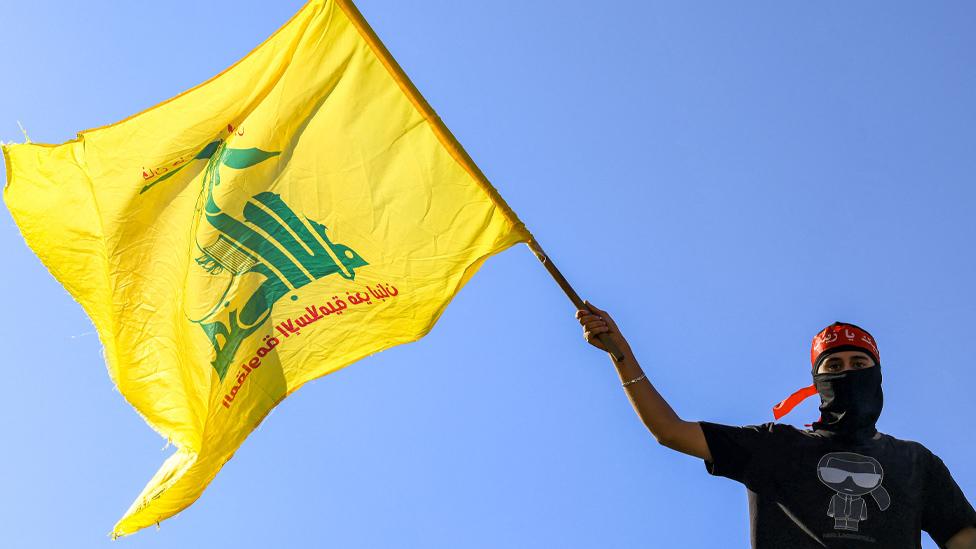
- Published20 October 2023
